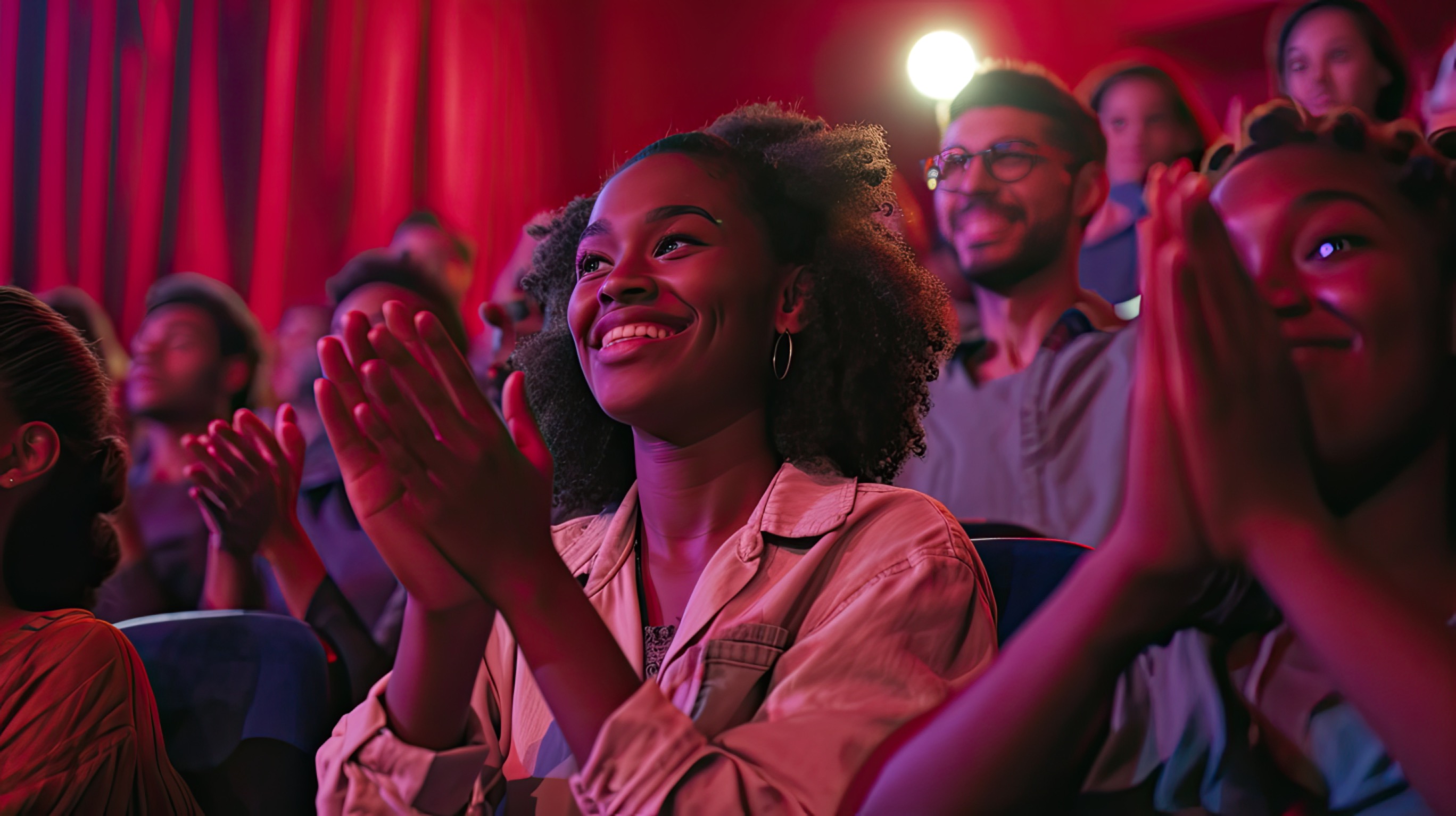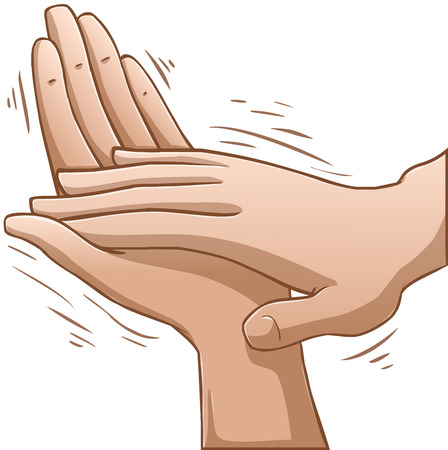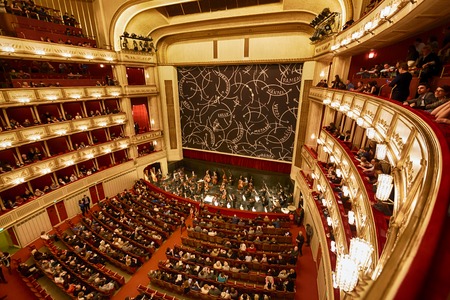The Art of Applause – Clapping
with Confidence
 Image Source: buraratn; "People applauding in the movie theater. Standing ovation.", 2024. Accessed via https://www.123RF.com/photo_222775645, Standard License.
Image Source: buraratn; "People applauding in the movie theater. Standing ovation.", 2024. Accessed via https://www.123RF.com/photo_222775645, Standard License.Applause is a common action, but there's an art to showing appreciation with your palms that goes beyond a simple clap. Whether you're attending a concert under the stars or a business presentation, proper applause is a part of the social expressions that bind us together.
Performers and their audiences need each other. There is a reciprocal relationship.
Knowing When to Clap
An audience applauds at the conclusion of a speech, performance, event or ceremony as a sign they enjoyed what just took place. The etiquette of applause varies depending on the setting.
- Classical Music: Hold your applause until the very end of the piece, typically signaled by the conductor lowering their baton. Clapping between movements is a big no-no!
- Theatrical Performances: Applause erupts naturally at the end of a play or act. You might also see applause for particularly strong performances during the show.
- Speeches: Many speakers will break at the end of a sentence or sub-topic for the audience to clap. But to clap or create excessive noise while the speaker is making a point is considered rude. A round of applause is appropriate at the conclusion of a speech, especially if it was informative or moving.
- Sports Events: Who hasn't put hands together and cheered when a baseball player is rounding the bases on his way to home plate? But the noise level is much more subdued when he is up to bat so that he has an opportunity to concentrate on when to swing. However, if you attend a golf event, remember that silence is golden. Only very light clapping - the golf clap - is allowed once the swing is completed and the ball has hit the ground and rolled to its stopping place.
When traveling abroad, or when attending an occasion that is new to you, research before going so that you're familiar with the protocol of applause. If you're ever in doubt about applauding at a particular moment, it's okay to follow what others are doing. But pay close attention! You don't want to find yourself participating in heckling or protesting that you disagree with.
The Power of a Standing Ovation
A round of applause sometimes becomes a standing ovation if the performance or celebration is extraordinary. But the audience decides, in the present moment, whether to bestow this honor. The standing ovation is reserved for truly exceptional performances.
Technique Makes Perfect

While clapping hands comes naturally to nearly everyone, use the art of applause for the most impact.
- Hold your non-dominant hand at chest level, palm facing inward at a 45-degree angle, and slightly cupped.
- Strike your other hand in the palm with the four fingers of your dominant hand, help flatly as illustrated here.
This method produces a hearty, genuine sound of applause without requiring much force. You can vary the intensity depending on the situation. A vigorous clap with some force is suitable for a rock concert, while a gentler applause is more fitting for a chamber music recital.
Enthusiasm is Key!
Every performer, player, musician, dancer, contestant, and speaker wants to hear some appreciation from their audience. The most important ingredient? Sincerity! Let your applause reflect your genuine enjoyment of the performance or presentation. A heartfelt round of applause can truly make someone's day.
The decision whether to applaud not only depends on the protocol of the event, but on whether you, as the audience member feel you've been entertained or have any sentiment for what you've heard and/or seen.
Applause is the demonstrated part of what the audience is supposed to do. However, if you disagree with what took place, or you hated the performance, it's fine to withhold your applause. Just know that this gesture will indicate displeasure.
Think about how you will feel if it's you on the stage someday and applaud accordingly.














